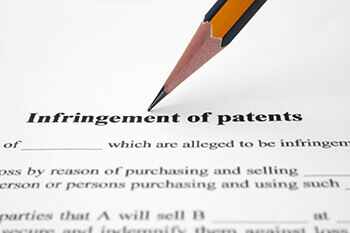Intellectual Property Law
How Do I Get Permission to Use Someone Else’s Work?
If you want to use the work of someone else, you may need to get permission to do so without accidentally infringing on someone’s intellectual property.
Firstly, you have to determine whether you need to get permission. If the work is protected under copyright, your unauthorized use may still be legal if it falls under “fair use.” Fair use permits you to copy small portions of a work for certain purposes such as scholarship or commentary. Fair use is a complex legal doctrine, and you should rarely assume your unauthorized use definitively falls under this exception.
Secondly, after determining that you need permission, you should identify the owner of the work. Keep in mind that there can be multiple owners of a single work. Thirdly, you must identify the rights you need. Each copyright owner controls a bundle of rights related to the work, including the right to reproduce, distribute, and modify the work. Therefore, you should identify the specific rights you need in order to effectively use their work. This can be as simple as stating your intended use—for example, you want to reproduce a photograph in your magazine or display a cartoon in your PowerPoint presentation.
Be prepared to negotiate whether payment is required. Sometimes, the owner of the work will not require payment if the amount you wish to use is small, or if the owner wishes to contribute to an educational or nonprofit effort. In some cases, an artist or musician eager for exposure may agree to suspend payment unless the work becomes profitable, or may condition payment on other factors. However, you should usually expect to pay something—even a minimal fee—for copyright permission. Also, be prepared to get it in writing. Written permission agreements are the most reliable way to reflect your permission.

Mary Casey
Managing Attorney
PHONE: 508-393-9244
EMAIL: casey@harborlaw.com
Mary Casey is a business law and intellectual property attorney.
Ms. Casey brings over twenty years of senior level technical and management experience in biomedical research, medical and bio-electronic device design and fiber optic and computer technology. The combination of hands-on technical experience and legal expertise gives Ms. Casey a unique understanding of her clients' business issues and needs which makes her an effective counselor.
Find out more about issues in our related practice areas
Intellectual Property Law
Trademark Protection
Trade Secrets
Copyrights
Patents
Intellectual Property Law
Insights, opinions and decisions you should know about

Defend Trade Secrets Act: Two Years Later
It has been more than two years since President Obama signed the Defend Trade Secrets Act (DTSA) into law, which created a federal, private, civil cause of action for trade-secret misappropriation in which “[a]n owner of a trade secret that is misappropriated may...

Where Do You Sue for Patent Infringement? – Proper Venue Post ‘TC Heartland’
In May of 2017, the Supreme Court unanimously reversed the Federal Circuit’s 25-year-old precedent on venue for corporate defendants.[1] Venue is the proper or most convenient location for trial of a case, and is governed by state and federal statutes. The 10-page...

Cost-Effective Mechanisms for Enforcing Intellectual Property Rights
In my practice, I counsel small and midsize business clients, many of which are astute with regard to securing their intellectual property rights. They have federally registered their trademarks with the U.S. Patent and Trademark Office, secured a portfolio of patents...

How Do I Defend a Patent Lawsuit?
The Top 5 Ways to Defend Your Company in Patent Infringement Litigation You discover that your company has been sued for patent infringement. After reviewing the patent cited in the complaint, you determine that the technology described relates to your company’s...
Get in touch with us.
Learn more about how we can help.